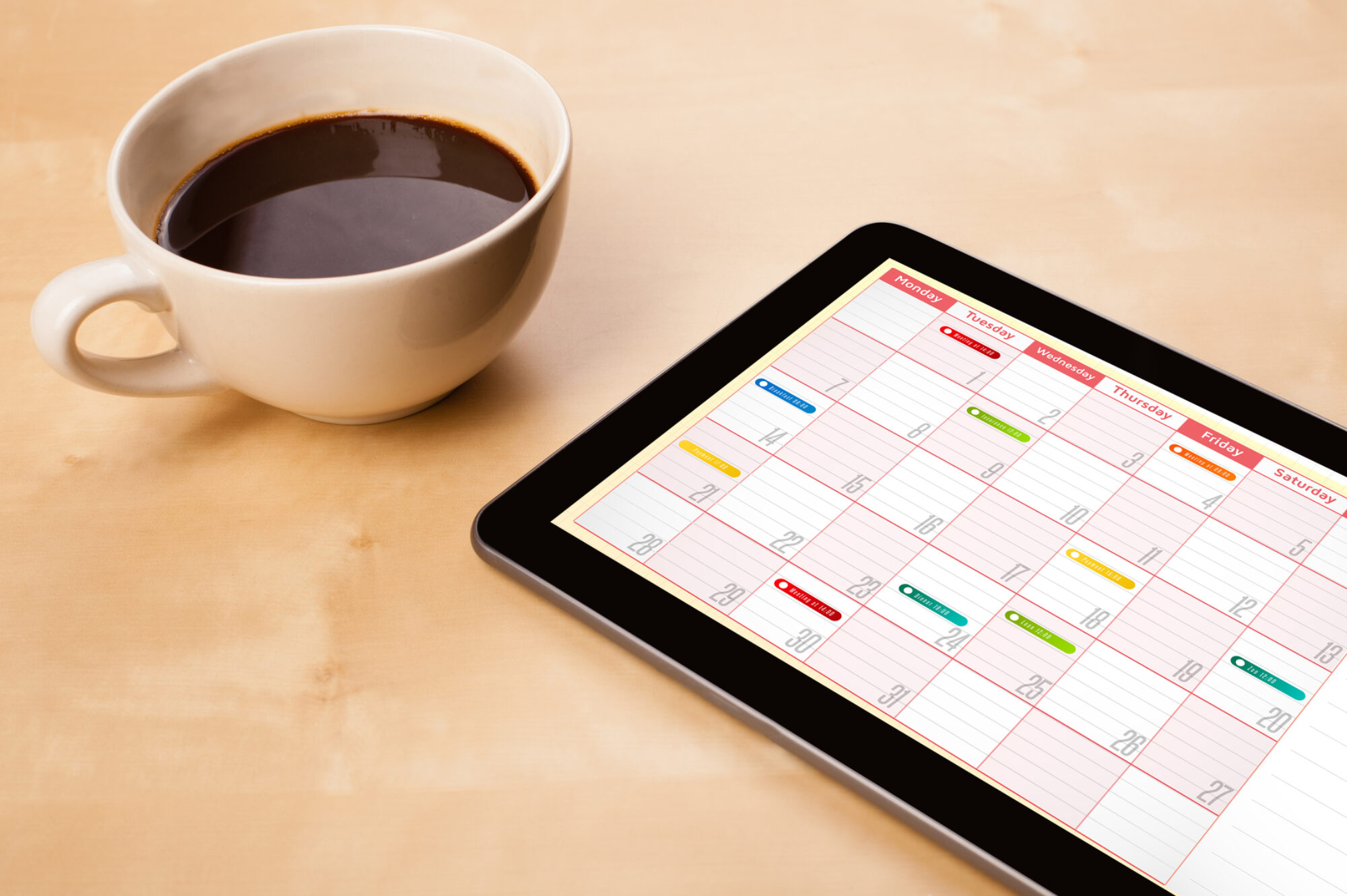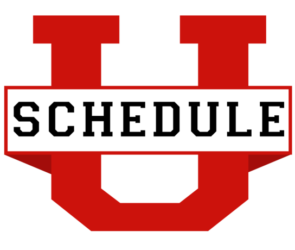In this post I share some of my results from playing the RandomCheck Game for five weeks in May-June 2017 – seven months ago. I had a cohort of 6-7 people along for the ride.
As you may recall from prior posts in Part 1 and Part 2, I set up a fun effort to improve my “On-Calendar” percentage: a measure of how well I follow my plan for the day.
The overall idea is that I am more effective when there is a match between my schedule and actual activity. If I can create a way to track my On-Calendar percentage I might be able to improve the underlying behavior.
The metric was defined as the number of times I am On-Calendar when a random check is performed. Fortunately, there are a number of apps which can be used to generate these random check-ins. I used one called RemindMe.
My alerts were set at random times in three time slots:
- 2 on weekday mornings from 8am-1pm
- 3 on weekday afternoons from 1pm – 6pm.
- 3 on weekends
Week 1 Report
This week I got an average 92% score on weekday mornings, 93% on weekday afternoons and 67% on the weekend.
So far I have learned that there is a pattern to my scores. My mornings are highly scripted and I am usually On-Calendar. This makes sense: I rise early and follow the same weekly routine, barring an occasional surprise.
My wife and we have synchronized, scripted schedules for the most part. On Sunday, Tuesday, Wednesday and Thursday and Saturday mornings I am exercising, and on the other mornings I am writing/working. I wake up between 4am and 5am like clockwork, without an alarm, courtesy of an early bed-time.
However, the afternoons are awful. I lose steam at around lunchtime when I usually eat and nap between 1 and 2pm. After that, it’s quite likely that I go Off-Calendar and stay that way until the following day. I notice that I don’t have the habit of rescheduling my calendar in the afternoon which is the reason why I mess things up. Too tired?
I also see myself making a deliberate attempt to stay on target, so some new behaviors are entering the picture:
- I go into my calendar and adjust it more regularly, a few times each day. This keeps me On-Calendar.
- I think about where I am at each point of the day.
- I don’t want to report a bad score to our team, so this has kept me on my toes.
Overall, I am far more aware of what I am doing. I have never been this aware of my On-Calendar status, not ever. Of course, having a team of people watching my progress and also playing the game allows me to benefit from the Hawthorne Effect.
Week 2 Report
Week 3 Report
This past week saw us losing power, Internet and water… in part due to floods across the island of Jamaica. So, it was quite challenging to stay On-Calendar.
Weekday mornings: 8/10
Weekday afternoons: 9/15
Weekend: 4/6
My moving averages are now at 82%, 72% and 67% respectively.
Week 4 Report
While playing the game, I had one person (Trish) who stuck with it all the way through to the end and another (Joyce) who also participated consistently. Others may have played, and not shared their progress.
Conclusions
Today is December 30th and some time has passed since I ended the game. I’m glad I waited this long before writing this report because I can see the effect the game had on my mid-term behavior more clearly.
When the game ended, I kept tracking my data but the RemindMe app turned out to be buggy in the extreme. In around November, it stopped popping up altogether.
Then, when I tried to access the data I had carefully downloaded, I ran into further issues. The developer appears to have abandoned any support, so I am actively looking to replace it.
- At this point in time, I can honestly say that I am far more conscious of being On-Calendar. However, it’s not yet a habit with an intrinsic trigger.
Bj Fogg, the habit change expert, describes a new behavior as a function of motivation, ability, and triggers. as shown in the diagram below. I think that my triggers to stay On-Calendar lie just on the cusp between Failure and Success, along that green line. They amount to no more than a stray thought which pops up every other day or so.
I think that my triggers to stay On-Calendar lie just on the cusp between Failure and Success, along that green line. They amount to no more than a stray thought which pops up every other day or so.
So, following the thinking from my article How High Performers Convert Single Behaviors Into Habits I need to find a way to create an internal trigger that is reliable.
- The fact that I was playing a game with an audience I convened help me pay attention. Most of the others who started dropped out, but I couldn’t, which helped.
- Having a tool like SkedPal made a huge difference – I could reschedule my calendar with the click of a button. So did a simple plugin for Google Calendar which I accessed with a button in the browser bar. I could have been even better with a button for SkedPal in or beside this icon on the browser bar.
- Setting up these games isn’t easy, from a technical point of view. If I hadn’t used an app, I could never have collected such detailed metrics. It just wasn’t built for this purpose.
- My overall moving averages dipped at first and then appeared to hold up. Now, I have a Google reminder set up me to get back On-Calendar – but only for the absolute worst day of the week – Tuesdays.

- As you can see below, there appears to be a difference between my performance on weekends and weekdays. It’s almost as if they are independent of each other.

Further Improvements
One of the reasons I embarked on this journey was to find a repeatable way to use gamification to help create a permanent habit. I think I have found a few elements that helped start me off in the right direction, but the fact that I still don’t have a permanent habit in place means that I have some way to go.
I’m glad I set this game up and played it to the end – it provided a far superior experience to simply making a quiet, personal effort.
I also need to report that I thought RandomCheck would be one of a number of games in the effort to increase my On-Calendar percentage. I tried hard to create other games, and even worked with one of my colleagues to try to devise another game.
I failed for a number of reasons which may become the subject of another article. Inventing a game that works in all respects is hard, even for something as simple as staying On-Calendar.
So, my search continues for a “final” answer.


 In the prior post in this series way back on June 30th, I promised to share the game I set up to become like the 11% who get everything done each day. I left off describing the fact that I had a group willing to play together to achieve the result.
In the prior post in this series way back on June 30th, I promised to share the game I set up to become like the 11% who get everything done each day. I left off describing the fact that I had a group willing to play together to achieve the result.